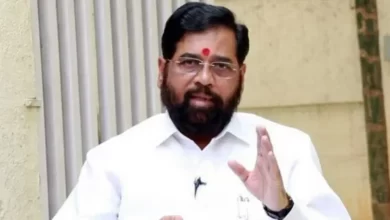Problems of unequal society

The overall development of society or country depends on equal opportunities available to every citizen, be it education, politics, health, resources, economic prosperity or anything else.
Jyoti Sidana
The overall development of society or country depends on equal opportunities available to every citizen, be it education, politics, health, resources, economic prosperity or anything else. The increase in inequality is responsible for the increase in many social problems, such as poverty, unemployment, crime, family tension etc. Therefore, there is a need to take positive steps in this direction.
French economist Thomas Piketty presented the concept of participatory socialism in his book Capital and Ideology, saying that everyone has the power to participate in the economy. He also argues that workers should be able to participate more in the operations of their companies, whether they have a share in capital or not. But we live in a world where the bottom half of the population does not inherit any property, while some of the population has millions or billions of wealth. History has shown that investment in education and reduction of inequalities are important steps for economic prosperity. In any country/society where there is unequal distribution of wealth, resources and power, radical changes are needed to eradicate institutional inequality. It becomes even more complicated in a country like India, where caste, religion, language, gender, regional inequality is already prevalent.
The World Inequality Report released in December said that India is a poor and inequalities country. It has also been claimed in this report that the income of the country has reached a very low level. On the one hand, the top ten percent of the population in India has fifty-seven percent of the national income, the bottom fifty percent of the population has only thirteen percent and forty percent of the population, or say the middle class, has twenty-nine percent of the total income. The income of one percent of the rich alone is equal to twenty-two percent of the total income of the country. Such high economic inequality creates many social, cultural and political problems in the society. Unless the model of development focuses on education, health and redistribution of resources, it is impossible to eliminate or reduce inequality.
The report also indicates that the income share of women workers in India is only eighteen per cent. It is a fact that the country can be made prosperous only by investing in the field of equality, education and health, and not by concentrating economic power in the hands of a few individuals. Economist Thomas Piketty, who was instrumental in the preparation of this report, argues that greater use of private property and market forces can help drive growth patterns and enrich the economy. He claims that it is not enough for India to give exemption from taxes to the industry, but it will have to guarantee income to poor families to deal with the economic crisis arising out of the Corona epidemic. Along with this, the government will also have to invest in public infrastructure. While every citizen has the potential to contribute to the development, then why not harness his potential. If we can do this, then we can be successful in trying to get India out of the list of countries with the most inequality in the world.
The question is whether this inequality is given by nature or man-made? And why and why is this inequality? If inequality is necessary for development, then countries facing inequality for many decades should have been included in the list of developed countries by now! It is a fact that inequality can never be a precondition for development. Just as a human being is born with both body and mind, it is the law of nature to develop both together. When either of the two parts is more or less developed, it is classified as abnormal personality.
That is, the body has developed but not the mind or the mind has developed but the body remains there, even then the society sees them as underdeveloped / abnormal. Similarly, the overall development of the society or country depends on equal opportunities available to every citizen. Be it education, politics, health, resources, economic prosperity or anything else. Had it not been so and the country’s development depended only on the prosperity or development of a few people, we would not have been ranked so low in the World Inequality Report or Human Development Index. The development index would have been fixed keeping in mind only 10% of the rich people. It cannot be denied that the increase in inequality is responsible for the increase in many social problems, such as poverty, unemployment, crime, family tension etc. Therefore, there is a need to take positive steps in this direction.
Social scientist Peter Saunders is of the opinion that no society can ever be completely socialist, but every society can develop some systems from which all groups get some benefit. Saunders discusses three types of similarities from this point of view. The first formal or legal equality means that every member of the society is guided by the same type of law. Second, equality of opportunities means that every person should get equal opportunities, he can compete with other people, he can be successful. Third, equality of results i.e. if everyone gets equal opportunity to prove himself, then later its results will start coming in the society of the same type. It can be agreed with his argument that by doing this a somewhat equitable society can be established.
They also argue that a large part of the ruling class has come into existence on the basis of private ownership of capital. Simultaneously, the number of white-collar workers has increased rapidly. An important cause of wealth inequality in any society is the power of the ruling class. And this class is found in any society from five to ten percent. It is also true that many members of the ruling class transfer their property to their relatives or friends and thus this property becomes the monopoly of a particular group. Whereas the subordinate class includes the wage and salary receiving population. A large group also emerged as the middle class, which tries to profit by investing a large part of their salary in the market. Thus this vicious cycle of inequality of wealth and power continues unabated. At the same time, the possibility of degradation of democratic values cannot be ruled out. What kind of society emerges when democracy is challenged, it can be understood by looking at today’s perspective.
Although statistics express quantitative results, qualitative analysis does not. That is, the figures are given on an average basis and the correct picture of any kind of development cannot be obtained on the basis of average, because policies are made for the welfare of citizens on the basis of the data itself. But if the data itself is misleading, then it is natural to question the success of the policies. Therefore, in the direction of reducing the increasing inequality in the society, the state, economists and intellectual class should take some concrete steps, which can really embody a just and equal society.
,






